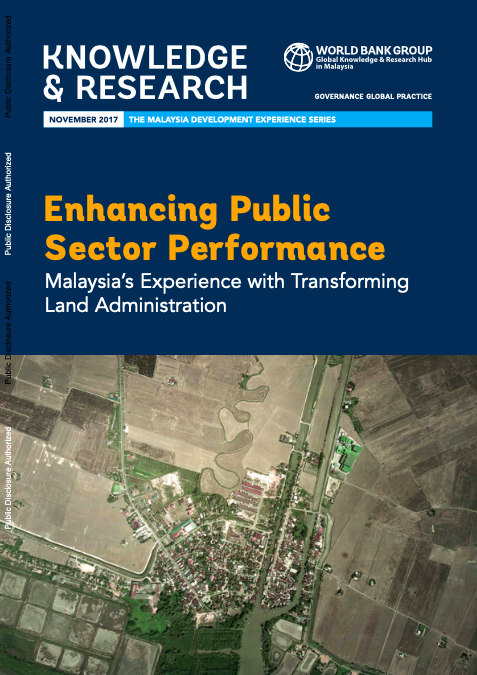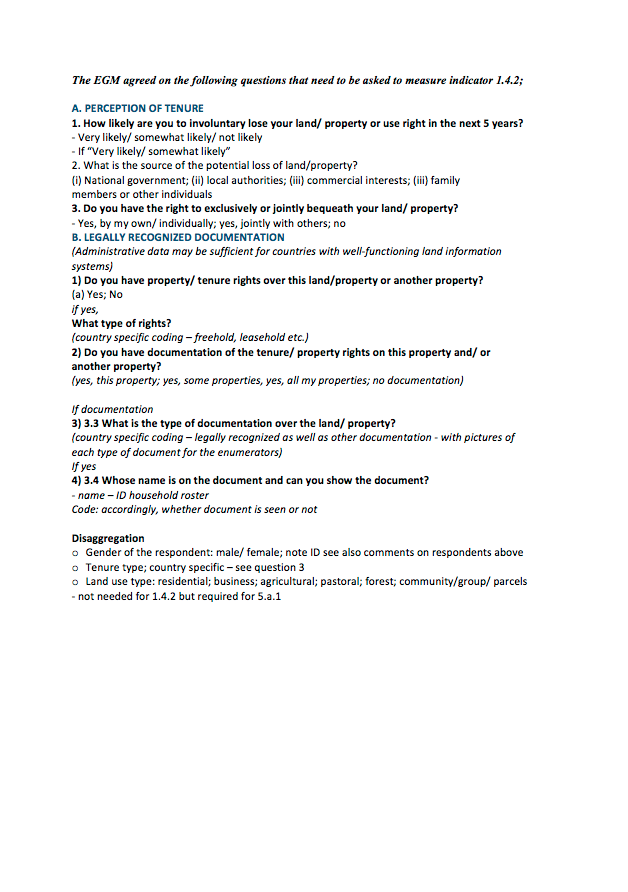The World Bank is a vital source of financial and technical assistance to developing countries around the world. We are not a bank in the ordinary sense but a unique partnership to reduce poverty and support development. The World Bank Group has two ambitious goals: End extreme poverty within a generation and boost shared prosperity.
- To end extreme poverty, the Bank's goal is to decrease the percentage of people living on less than $1.25 a day to no more than 3% by 2030.
- To promote shared prosperity, the goal is to promote income growth of the bottom 40% of the population in each country.
The World Bank Group comprises five institutions managed by their member countries.
The World Bank Group and Land: Working to protect the rights of existing land users and to help secure benefits for smallholder farmers
The World Bank (IBRD and IDA) interacts primarily with governments to increase agricultural productivity, strengthen land tenure policies and improve land governance. More than 90% of the World Bank’s agriculture portfolio focuses on the productivity and access to markets by small holder farmers. Ten percent of our projects focus on the governance of land tenure.
Similarly, investments by the International Finance Corporation (IFC), the World Bank Group’s private sector arm, including those in larger scale enterprises, overwhelmingly support smallholder farmers through improved access to finance, inputs and markets, and as direct suppliers. IFC invests in environmentally and socially sustainable private enterprises in all parts of the value chain (inputs such as irrigation and fertilizers, primary production, processing, transport and storage, traders, and risk management facilities including weather/crop insurance, warehouse financing, etc
For more information, visit the World Bank Group and land and food security (https://www.worldbank.org/en/topic/agriculture/brief/land-and-food-security1
Resources
Displaying 76 - 80 of 4907Enhancing Public Sector Performance
This report is part of the series focusing on documenting the lessons from Malaysia for other developing countries in improving their public-sector management. These lessons include those at the center of government, such as the delivery unit method applied to the implementation of the national priorities, or implementing the elements of performance-based budgeting, as well as deeper analysis of specific approaches in various sectors. Strategies for improving public sector performance will differ in education, health, public transport, or land administration.
Doing Business 2018: Reforming to Create Jobs
Fifteen in a series of annual reports comparing business regulation in 190 economies, Doing Business 2018 measures aspects of regulation affecting 10 areas of everyday business activity:
Essential Questions for Indicator 1.4.2
The document details the agreements of the Expert Group meeting on a set of defined questions that need to be asked in order to properly measure 1.4.2.
Essential Questions for Indicator 1.4.2
The document details the agreements of the Expert Group meeting on a set of defined questions that need to be asked in order to properly measure 1.4.2.
Essential Questions for Indicator 1.4.2
The document details the agreements of the Expert Group meeting on a set of defined questions that need to be asked in order to properly measure 1.4.2.








